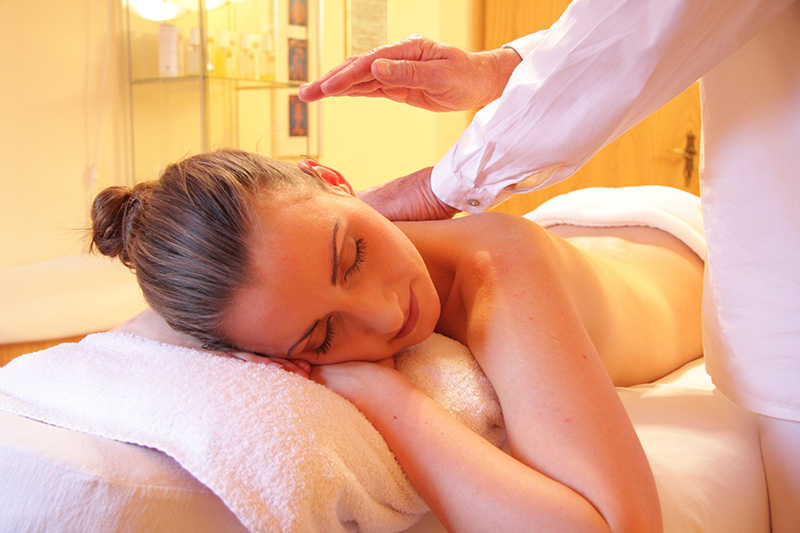Don’t be ashamed to admit that you’re a beginner in the world of massage – well, at least, the professional type. You will find that the massage therapists at massage spas such as Hand and Stone Massage won’t take it against you and, in fact, you can work it to your advantage. You can ask questions that will enhance your experience – what to do before, during and after your massage, for example.
But don’t freak out, too, if you make these assumptions. You just need to move on and trust that the massage therapist has seen it all on the massage table.
Holding In Your Farts
Massage improves your digestion, especially when the massage therapist performs circulatory massage on your stomach area. You may then hear grumbling noises and feel the urge to fart while you’re on the massage table – and that’s okay. You don’t have to hold in your farts or apologize for them – your massage therapist knows it’s part of the job.
In short, farting is a normal occurrence during a massage. But if you’re worried about passing gas one too many times, you can avoid high-fiber foods before your massage; otherwise, you’re getting out more farts than you want. You should also take a long, hot shower and do your ablutions (e.g., pee and poo) before being on the massage table.
Don’t drink too much water – or alcoholic beverages, fruit drinks and other fluids, for that matter – so you don’t come in for your massage with a bloated feeling. Plus, you won’t feel the need to pee while your massage therapist is pressing on your bladder.
You may also tell your massage therapist about your need to fart, a courtesy that will be appreciated.
Eating Immediately Before Your Appointment
This mistake is related to farting in the sense that if you don’t want to fart too many times during a massage, you shouldn’t eat 30 minutes or so before your session. You don’t want to go into your session with a full stomach.
But that doesn’t mean that you should starve yourself – you will feel lightheaded, even dizzy, when you’re on the massage table if you do. You can eat a light snack immediately before a massage, if you’re feeling like it, but eat a full meal a few hours before – a couple of hours should be good since the food will be digested by then so you won’t feel uncomfortably full.
No Pain, No Gain
Massage is about relaxation! If you think that it comes with a little pain, perhaps moderate pain as in the case of deep tissue massage, then you’re thinking of massage incorrectly. Indeed, pain shouldn’t be part of the massage equation because it’s about being relaxed in mind and body.
Yes, there may be a slight discomfort when your massage therapist stretches your muscles and skin as a result of your tense or tight muscles being worked on. But that should be the worst discomfort.
If too much force is applied on tense or tight muscles, it creates more resistance and, thus, more pain. You will not only feel the increased pain but you’re also likely to get more bruises and soreness.
The bottom line: If anything hurts, even when it seems low because of your high pain tolerance, you should tell your massage therapist about it. You won’t be seen as a wimp because of it, neither will the massage therapist be offended. Every person has a pain threshold and the best massage therapists are trained to respect it.
Holding Your Breath Is Okay
Your massage therapist may be working on a kink 0r a knot in your body and you’re anticipating the discomfort. You then hold your breath and tense up, ever so slightly.
But that won’t do your body any good! You have to make a conscious effort to breathe deeply and fully when your massage therapist is working on your body’s tense and tight muscles. This way, you’re oxygenating your blood supply that, in turn, means helping your tense and tight muscles become more relaxed.
Besides, you will enjoy every stroke more if you’re in a relaxed mode and the best way to do it is to breathe fully and deeply – or at least, in a normal manner instead of holding your breath or hyperventilating every so often.
After your massage, you should drink plenty of water. While a massage is a relaxing experience, it’s similar to exercise, an activity that puts stress on your body – in both cases, your muscle tissues require rehydration afterwards. You’re not only rehydrating your muscle tissues but you’re also eliminating metabolic wastes – a double whammy, if you will.
More important, the less is more concept doesn’t exactly apply to massage. While a single massage session has its benefits, the greatest benefits of massage are enjoyed over time – or over several sessions, to be more exact. So go for as many massage sessions as possible, perhaps one to two times a week to enjoy its benefits.
